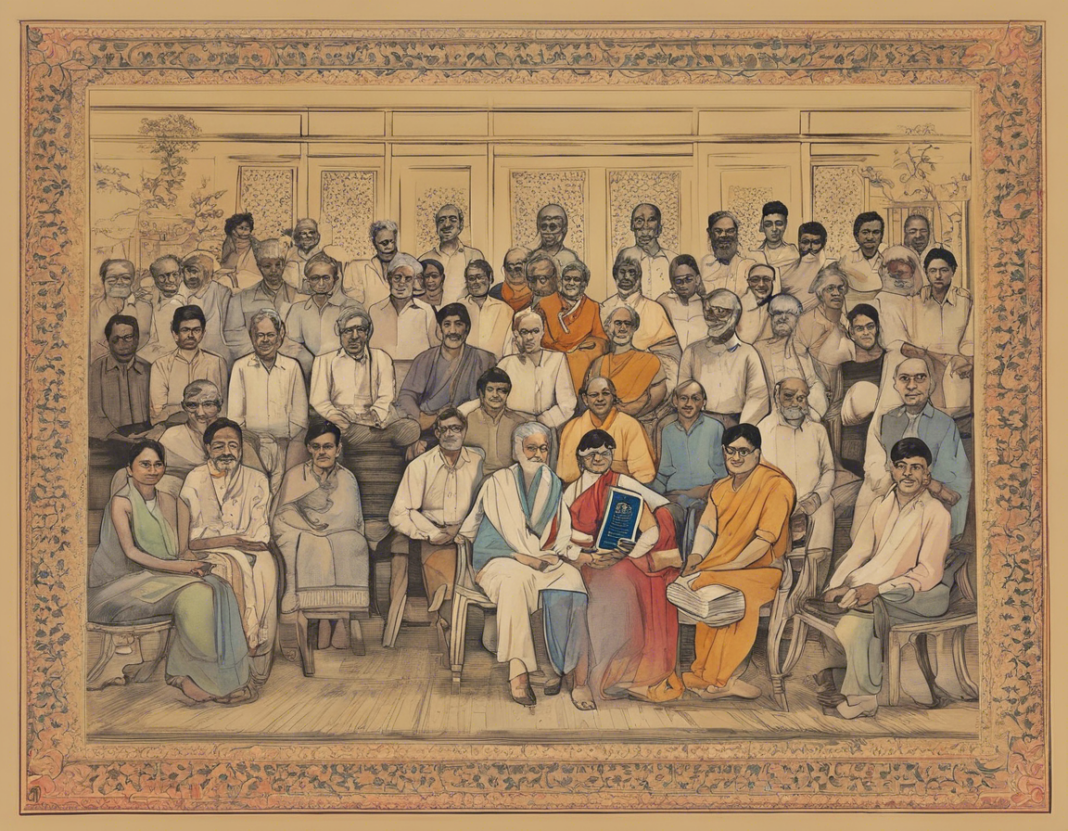The Sahitya Akademi Award is one of the most prestigious literary accolades given in India. Established in 1954, the award recognizes and promotes excellence in Indian literature across 24 languages, including both official and non-official languages. The Sahitya Akademi, India’s National Academy of Letters, presents this award annually to outstanding works in the fields of poetry, fiction, creative non-fiction, drama, criticism, and essays.
Origins and Significance of the Sahitya Akademi Award
The establishment of the Sahitya Akademi Award was a significant milestone in the promotion of literature in India. It was envisioned as a means to recognize and honor literary works of exceptional merit and to encourage writers to continue producing high-quality literature in various Indian languages. The Sahitya Akademi Award holds immense cultural significance as it celebrates the diversity and richness of the country’s literary landscape.
Selection Process and Criteria
Each year, the Sahitya Akademi invites publishers, academicians, and literary experts to submit works for consideration. A panel of esteemed writers and scholars then evaluates the submissions based on established criteria such as literary quality, originality, thematic depth, and contribution to the language and literature. The selection process is rigorous, ensuring that only the most deserving works receive this prestigious award.
Categories and Languages
The Sahitya Akademi Award is presented in various categories, including poetry, fiction, creative non-fiction, drama, criticism, and essays. The award recognizes outstanding works in 24 languages, including Hindi, Bengali, Kannada, Urdu, Tamil, Telugu, Marathi, Gujarati, Punjabi, and Assamese, among others. Each language is represented, highlighting the linguistic diversity of India and the rich literary traditions that exist across the country.
Notable Recipients and Impact
Over the years, the Sahitya Akademi Award has been bestowed upon numerous renowned writers, including Munshi Premchand, Mulk Raj Anand, Mahasweta Devi, R.K. Narayan, Ruskin Bond, and Jhumpa Lahiri, to name a few. The award has helped elevate the status of Indian literature on the global stage and has encouraged writers to push the boundaries of creativity and expression. Winning the Sahitya Akademi Award is considered a prestigious achievement and often leads to increased recognition and readership for the authors.
Controversies and Criticisms
While the Sahitya Akademi Award is highly respected, it has also faced criticisms and controversies over the years. Some have raised concerns about the selection process, alleging favoritism or biases in the awarding of the prize. Others have questioned the representation of certain languages and genres, calling for greater inclusivity and transparency in the selection criteria. Despite these challenges, the Sahitya Akademi continues to play a vital role in promoting Indian literature and honoring literary excellence.
FAQs about the Sahitya Akademi Award:
-
Who can be nominated for the Sahitya Akademi Award?
Authors who have published works in one of the 24 recognized languages of the Sahitya Akademi are eligible for nomination. -
How are the winners of the Sahitya Akademi Award chosen?
Winners are selected by a jury of eminent writers and scholars based on criteria such as literary quality, originality, and thematic depth. -
What are the benefits of winning the Sahitya Akademi Award?
Winning the award brings recognition, prestige, and increased readership for the authors, helping to further their literary careers. -
Can a work be submitted for the award in multiple languages?
No, a work can only be submitted in one language for consideration for the Sahitya Akademi Award. -
How has the Sahitya Akademi Award influenced the Indian literary landscape?
The award has elevated the status of Indian literature, encouraged writers to produce high-quality works, and promoted linguistic diversity across the country.
In conclusion, the Sahitya Akademi Award stands as a symbol of literary excellence in India, honoring the rich tapestry of languages and cultures that make up the country’s literary landscape. Through its recognition of outstanding works in various genres and languages, the award continues to inspire and celebrate the creativity and talent of Indian writers, contributing to the vibrant tradition of storytelling and expression in the country.
